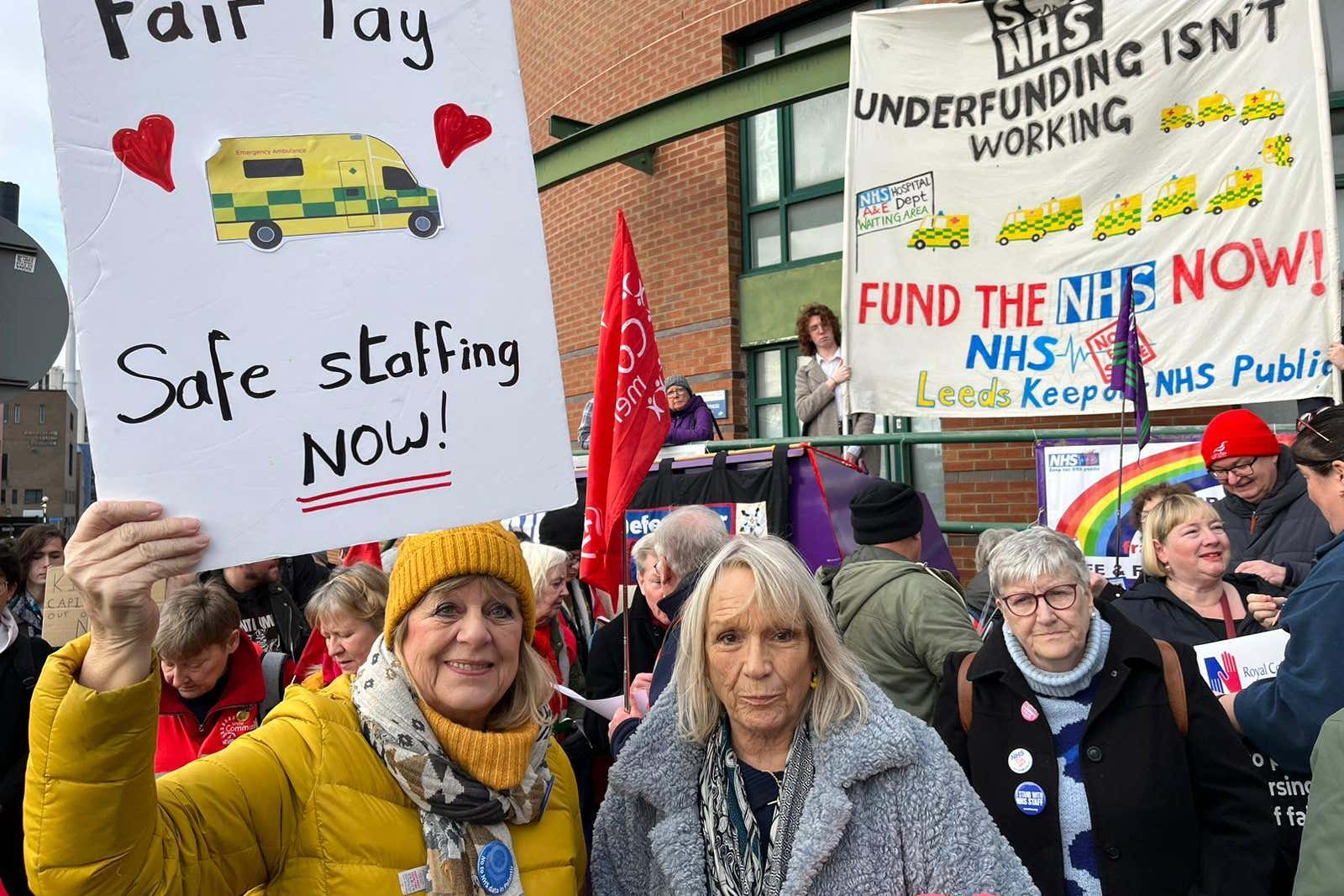Protesters rally in ’emergency response’ to NHS ‘crisis’
Campaign group Keep Our NHS Public organised 27 events on Saturday.

Your support helps us to tell the story
From reproductive rights to climate change to Big Tech, The Independent is on the ground when the story is developing. Whether it's investigating the financials of Elon Musk's pro-Trump PAC or producing our latest documentary, 'The A Word', which shines a light on the American women fighting for reproductive rights, we know how important it is to parse out the facts from the messaging.
At such a critical moment in US history, we need reporters on the ground. Your donation allows us to keep sending journalists to speak to both sides of the story.
The Independent is trusted by Americans across the entire political spectrum. And unlike many other quality news outlets, we choose not to lock Americans out of our reporting and analysis with paywalls. We believe quality journalism should be available to everyone, paid for by those who can afford it.
Your support makes all the difference.Thousands of campaigners and NHS workers have joined protests across England in an “emergency response” to the “crisis” gripping the health service.
Campaign group Keep Our NHS Public, which wants to eradicate all private sector involvement from the NHS, organised 27 events on Saturday from Swanage and Southampton in the South to Kendal and Sunderland in the North.
Protesters in Leeds, West Yorkshire, flew banners and held placards that read “Underfunding isn’t working” and “Where are our new hospitals?” as they gathered in the city centre.
The group’s spokesperson said the protests showed solidarity with striking frontline staff and would build support for extra investment ahead of a planned national demonstration in London in March.
Samantha Wathen told the PA news agency: “This is an emergency response to how bad this crisis currently is and on top of that to show solidarity with striking workers: ambulance workers, nurses and we’re fully expecting the junior doctors to go out as well.
“We’re trying to get the public to understand the reasons leading up to where we are now and the fact that it is not the staff’s fault. People aren’t dying because staff are striking. Staff are striking because people are dying.”
The protests varied in scale, from street stalls outside supermarkets to mass demonstrations with public speakers.
Ms Wathen said the health service could only escape the current crisis through multimillion-pound investment and by removing the role of private providers.
“We advocate for having a very well-funded system because at the moment we are several billion pounds underfunded since 2010 year-on-year, and having a fully staffed system as well,” she said.
“At the moment we have 132,000 NHS vacancies so we basically want a fully staffed, fully funded and fully public NHS and the idea would be to reinstate the NHS, completely eradicate private partners and go back to the original model.
“I think it is worse now than it ever has been. It has been a political choice to underfund and understaff over the past decade. It has been run down to such an extent regardless of all the warnings.
“When it was funded properly in 2010, it was the best independently ranked healthcare system on the planet and it was very efficient as well.”
Dr John Puntis, the group’s co-chair, said the “future of our NHS is now at stake”.
A Department of Health and Social Care spokesperson said: “The NHS is and will remain free at the point of delivery to the entire population. Each person is treated based on their need, rather than their ability to pay – this is the fundamental principle of the NHS.
“The independent sector has been used to bolster NHS capacity and ease pressure at critical times for nearly two decades. Our elective recovery taskforce will work to unlock its capacity as we focus on cutting waiting times and giving patients quicker access to treatment and diagnostic tests.
“It is for NHS Trusts and local authorities to decide whether to access support from the private sector in improving patient’s journey’s in hospital and, once they are discharged, bodies such as the Care Quality Commission regulate the private sector where they are delivering care.”